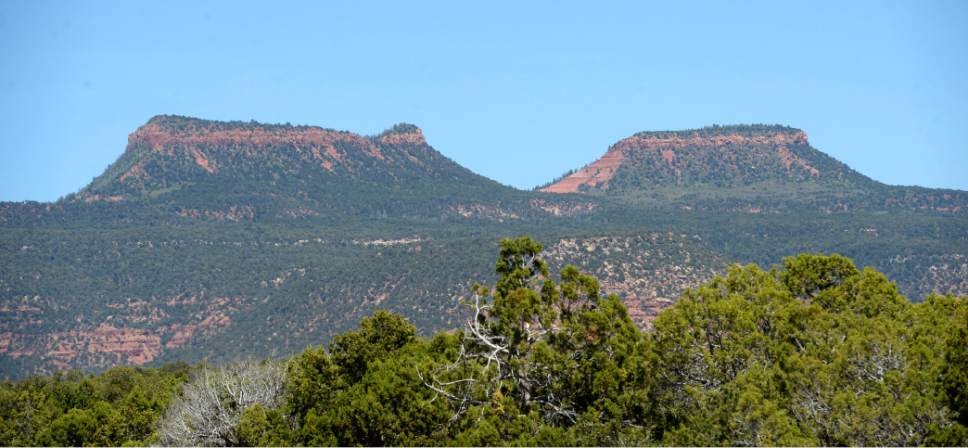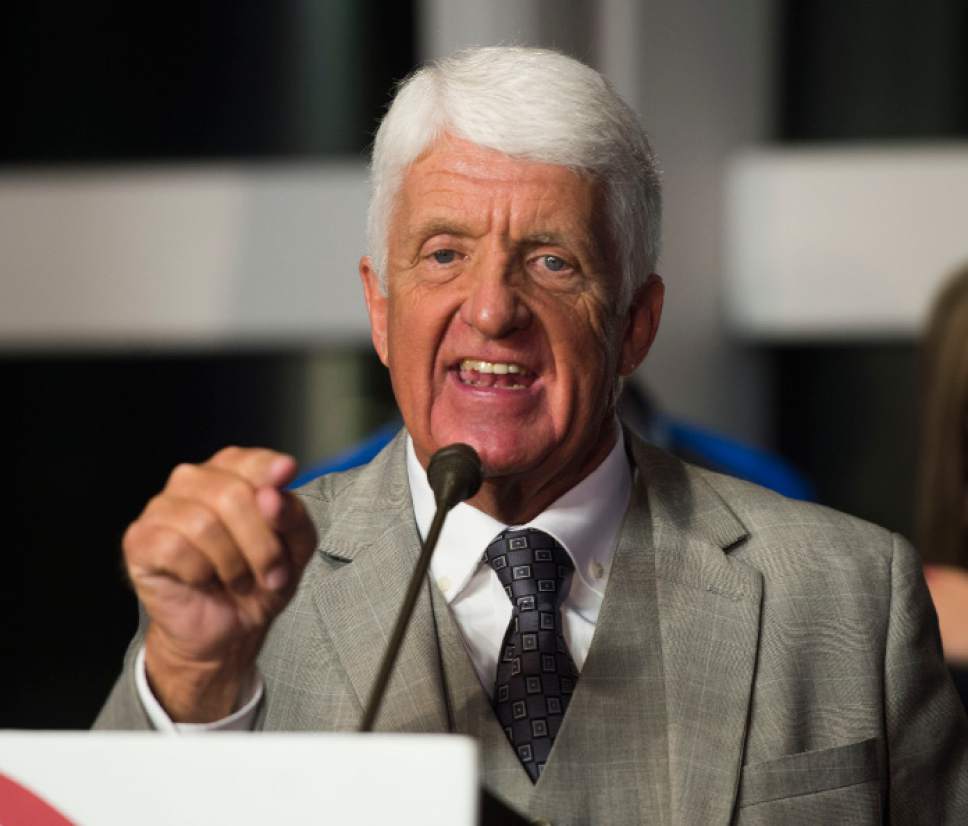This is an archived article that was published on sltrib.com in 2016, and information in the article may be outdated. It is provided only for personal research purposes and may not be reprinted.
Utah Rep. Rob Bishop took his case against the Antiquities Act to the Trump presidential transition team Monday, asking the incoming president to consider doing what none of his predecessors have done: Undo national monument designations.
The influential chairman of the House Natural Resources Committee believes President Barack Obama has misused his executive powers under the 1906 statute by establishing monuments on the West's publicly owned landscapes without local buy-in and including far too much land for the law's narrow scope.
"Any monument designation that lacks local support, is excessive, or violates the terms of the Antiquities Act will be scrutinized and is easier to abolish. Today's discussions with the transition team examined options for the incoming administration. The talks were positive and encouraging," Bishop said in a news release.
In the meeting, Bishop discussed his and others' misgivings about the controversial proposal by five Indian tribes to designate a 1.9-million-acre national monument in Utah's San Juan County.
Elected county leaders have been nearly unanimous in their opposition to the proposed Bears Ears monument, arguing it would impede public access and disrupt traditional activities. On the other hand, many tribal officials elected to Navajo government posts support or openly advocate for monument designation because they feel the region's fragile natural and cultural resources need greater protection.
The Antiquities Act does not explicitly prohibit a president from abolishing a previously designated monument. Legal research and a U.S. Attorney General's opinion suggest that presidents have limited power to adjust a prior designation, but not to eliminate it.
"No president has ever abolished or revoked a national monument proclamation, so the existence or scope of any such authority has not been tested in courts. However, some legal analyses since at least the 1930s have concluded that the Antiquities Act, by its terms, does not authorize the president to repeal proclamations, and that the president also lacks implied authority to do so," states an analysis released by the Congressional Research Service last month.
While Congress has a clear privilege to revoke monument proclamations, doing so by presidential decree would lead to "lengthy litigation, paralysis and no certain outcome," according to Public Employees for Environmental Responsibility (PEER), a conservation advocacy group.
Past presidents acting "unilaterally" have set aside lands that were later incorporated into some of the West's most revered national parks, including Grand Canyon, Teton, Olympic and four of Utah's "Mighty Five."
Obama could go down in history as the most prolific wielder of the Antiquities Act, so far invoking it at least 26 times, setting aside more land, ocean and historic sites than any other U.S. president. Among his designations are 12 Western-state landscape-level monuments, covering nearly 4 million acres — mostly in the desert southwest.
"Having a President [Donald] Trump take the unprecedented step of trying to unilaterally revoke monuments is guaranteed to trigger lawsuits that will likely remain unresolved during his tenure," said PEER's executive director, Jeff Ruch.
"Congresspersons who bellyache about national monuments set aside for the American people over the last generation have only themselves to blame for abdicating the constructive and dynamic role in national monuments played by past Congresses," he said.
Ruch's barb was aimed at Bishop, a Republican known for fighting to constrain federal oversight of public lands and authority to protect the environment.
"This a clear-cut case of a politician carrying water for the corporate interests who've underwritten his political career, not the people who choose to call the West home," said Jennifer Rokala of the pro-conservation Center for Western Priorities. "Congressman Bishop's vision for the West, where pumpjacks replace open space and where subdivisions replace hunting grounds, is out of step with the vast majority of Westerners."
But Salt Lake City-based Sutherland Institute says Bishop is on target with his efforts to ensure the Antiquities Act is deployed in ways it was intended.
According to the right-leaning think tank, that means presidential proclamations should protect only antiquities, defined by the Antiquities Act as "objects of historic or scientific interest." The designation must "be confined to the smallest area compatible with proper care and management of the objects to be protected," the act states, and the declaration is supposed to protect the antiquity from imminent danger.
"We share many of his frustrations on how many presidents have abused the act," said Matt Anderson, Sutherland's public lands policy specialist. "Both sides of the political aisle are seeing the dangers of the Antiquities Act. It ignores local input and puts a president's personal preferences and biases above all."
Sutherland suggests Trump could issue an executive order pledging to revoke a monument designation in a state after the local legislature passes a resolution asking him to take such action.
"That way, local voices are heard in the process. If the state legislature doesn't pass the resolution, the monument stays," Anderson said.
Brian Maffly covers public lands for The Salt Lake Tribune. Brian Maffly can be reached at bmaffly@sltrib.com or 801-257-8713. Twitter: @brianmaffly





